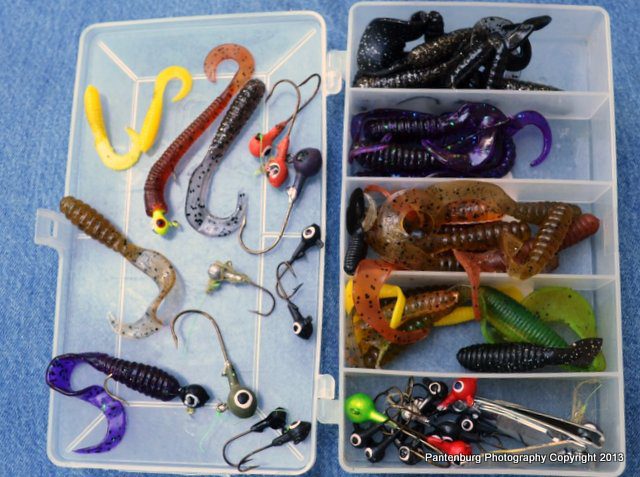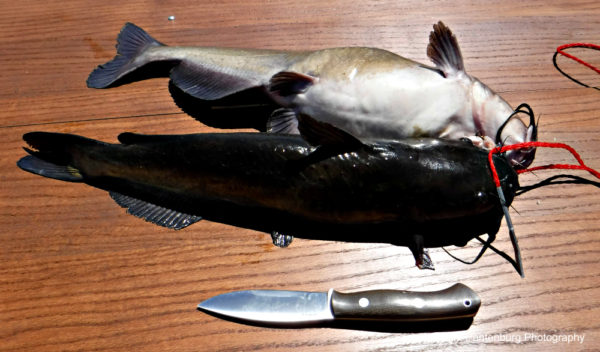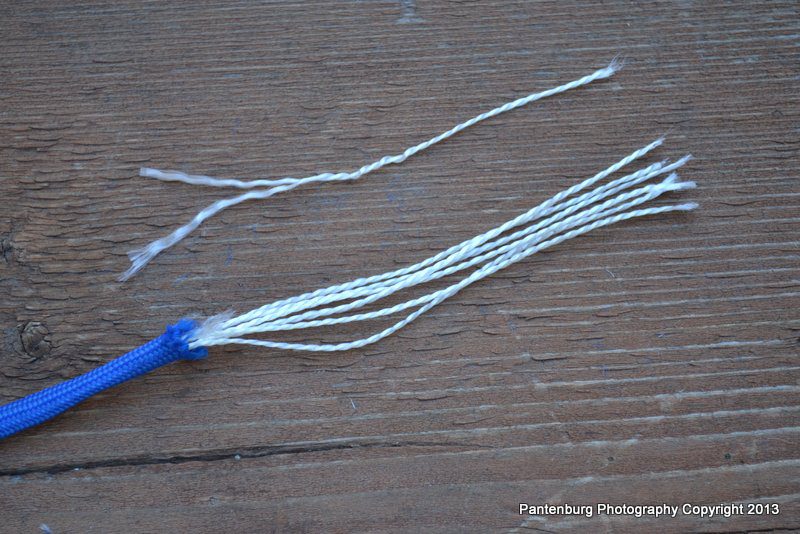One of the most effective baits for catfish is chicken liver. Here is one method for keeping it on the hook.
by Leon Pantenburg
I lived off fish for several months of my end-to-end Mississippi River canoe voyage. I started out with several rods and reels, and at the end of the first week, sent home three and a bunch of lures. My equipment choices were pared down to a very basic medium action, fast tip six-foot spinning rod, a Mitchell 300 reel with high visibility six pound line and a 1/8-ounce leadhead jig, tipped with a three-inch yellow Mister Twister grub.

This collection of jigs is all I need for smallmouth bass fishing in Central Oregon, but the jigs won’t generally work for catfish.
This was my lunch and dinner rig. If fish were on the menu for lunch, I’d start fishing about 11 a.m. As soon as there were enough for lunch, it was time to pull over to shore, fire up the Swea 123 stove and have a fish fry.
But at night I sometimes went for catfish. My standard procedure was to get some fresh chicken livers at a grocery store and use them for bait. At night, I’d pull the canoe up on shore, bait a hook with liver and toss it in the river while I set up camp. Many times, I had a nice catfish on the line when it was time for supper.
If I didn’t catch anything, I’d fry the livers for supper. Otherwise, I’d keep the leftover liver, and use it the next night for bait. The liver worked better when it had had a chance to ripen some.
The biggest challenge in this sort of survival fishing was keeping the liver on the hook. I recently heard about this method of using a northwest salmon/steelhead egg hook for liver fishing. The hook is snelled at the bend, and all you do is put the liver on and wrap around it with the line.
I tried this method on Oregon’s John Day River recently, and the liver would stay on the hook for several hours. Obviously, the catfish weren’t biting or I was in the wrong place. But this would be a solid method for liver fishing on a trotline.
Please click here to check out and subscribe to the SurvivalCommonSense.com YouTube channel – thanks!





Leave a Reply